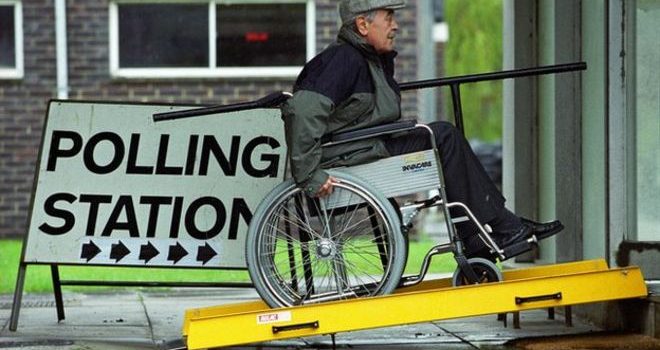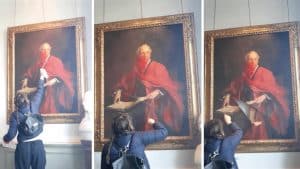I have Spinal Muscular Atrophy (SMA), a neuromuscular disease that causes systemic muscle weakness. As a result, I use a motorized wheelchair full-time. Furthermore, SMA also leaves me at high-risk for COVID-19. As a high-risk individual, I contemplated how I would vote during a year with incredibly high stakes for all marginalized groups, including those with disabilities. What was the safest way for me to vote and feel confident that my vote would be counted? I chose to vote early. Voting early, in theory, is a solution to avoid large crowds during the pandemic as well as give individuals flexibility in going to the polls. This is useful for many people, but particularly for the disabled population, if they can even partake. Many don’t have the day off on Election Day to vote and therefore can’t afford to participate, demonstrating the necessity for alternate voting times. However, early voting was much different in practice. Polling places during this time are typically much farther away than one’s typical voting location and consist of long lines, which for many, makes this option less accessible. Though my location was over a mile away, I was fortunately able to get there.
As I entered the polling location, I was taken toward the front and pointed to a lift. I looked at the lift and was terrified. I immediately knew I did not want to get on it and risk not only getting hurt, but also getting stuck in a gymnasium full of strangers during a pandemic. I was pushed to get on the lift as they were rushing people through the line and for two seconds did, feeling the lift drop down a few inches under me immediately. I quickly backed off and turned around. I pulled to the side and asked the person I was with to see if there was an alternative route to get down or if my ballot could potentially be brought up the few stairs, given that I was there and ready to vote. A few conversations later, the result was no. A poll worker came up to me and said that that was what absentee ballots were for.
I recently read about a 94-year-old woman, Mildred Madison, who traveled over 300 miles each way to vote in-person when she didn’t receive her absentee ballot. I’ve also read about Joanne Wolf, a person with multiple sclerosis, who could not vote in-person due to being immunocompromised, but also previously had her absentee ballots rejected due to her use of a signature stamp, as she is unable to sign documents.
Places, the system, and our “democracy” are not built with disabled bodies in mind. There may be “alternative solutions” to access, but often are not solutions, let alone equitable ones. The ultimately inaccessible lift is just one microcosm of this issue. I should not be scared to cast my vote. No one should have to travel 600 miles for access. A person should not have their ballot rejected due to their means of participation. If 2020, and COVID-19 more specifically, has shed light on anything, it’s that people with disabilities (inclusive of the immunocompromised and/or high-risk) are an acceptable net loss in society. We can see this in the way our current administration as well as many in society treat COVID-19 and the recommended precautions. We’ve seen this in the deaths of individuals who have died in long-term care facilities from COVID-19. This is not just a Republican problem. I live in NYC, in a blue state, and it was difficult for me to vote. Further, the deaths as a result of COVID aren’t just a Republican problem; in NYC, as well as on a national scale, premature re-openings have been promoted to maintain capitalist profits, resulting in so many deaths.
The current state deems those with disabilities and other populations such as those with convictions to be acceptable losses if and when they are excluded from or ultimately harmed by our processes and systems. Working class people, especially people of color, are systematically disenfranchised in this process.
Rutgers recently projected that 38.3 million people with disabilities will be eligible to vote in this month’s election, representing almost 1/6 of the total electorate. People with disabilities cannot be excluded or forgotten. Voting should be all-inclusive, accessible, and used as a tool to truly represent all folks. That being said, this calls into question the electoral process in general and if individual votes and voices in this current design make a difference. One should not have to feel unsafe participating in the process. One should be able to cast their vote in an attempt to raise their hand despite a system that perpetually makes choices against their livelihood and success. But to really address the needs of people with disabilities, we need a different system. We need a system that doesn’t put profit before people, that allows us to democratically decide about all aspects of our lives.










